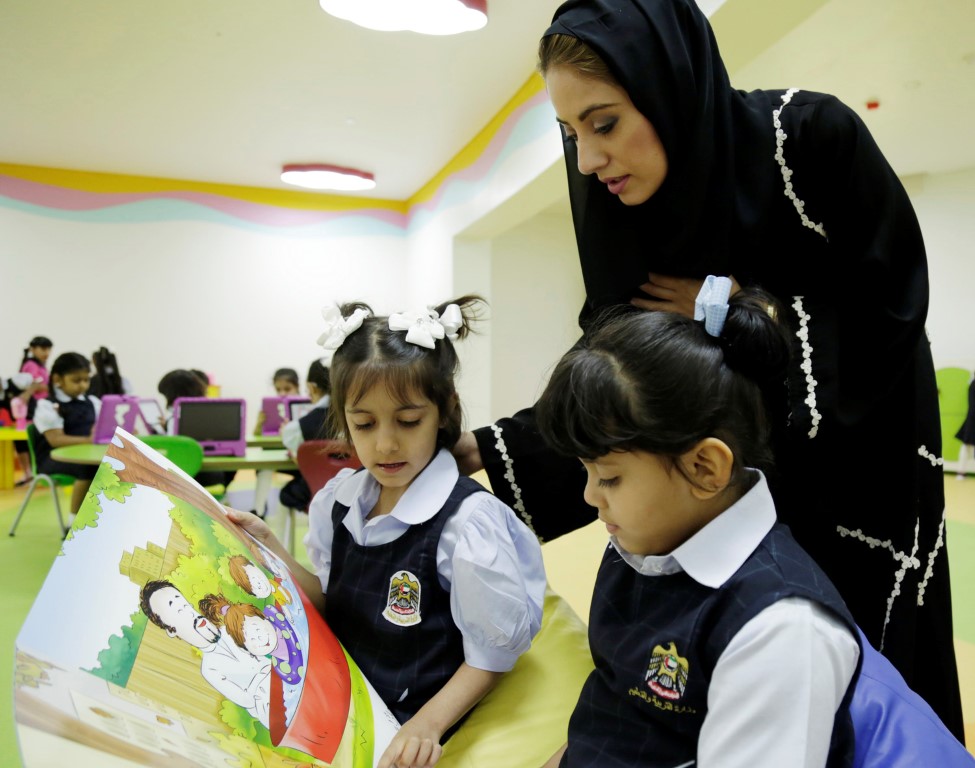
Dubai schools continue to ‘work together’; 9 out 10 students studying in private schools
A new report by the World Bank is calling on schools in Dubai to continue working together and further improve collaborative practices.
The report titled, ‘Collaboration Road: Dubai’s Journey towards Improved School Quality’, was launched at the Global Education and Skills Forum (GESF) on Sunday.
Highlighting Dubai’s success in creating more choices for parents, the report said, “Nine out of ten students attend private schools following one of seventeen different school system curricula. Dubai has one of the most extensive private education sectors in the world.”
In the last seven school years, there have been more than 80,000 new students (a 40% increase) and 76 new school openings.
In a panel discussion at the Global Education and Skills Forum (GESF), representatives from the World Bank and Knowledge and Human Development Authority (KHDA) discussed Dubai’s journey towards better school quality.
Speaking at the session, Hind Al Mualla, Chief of Creativity, Happiness and Innovation at KHDA said, “There is an amazing enthusiasm when teachers work together with each other and this leads to effective learning. Creating this shared culture of collaboration has encourages schools to look beyond their own offering and see how things can be done differently.”
Simon Thacker, the report’s author, said, Dubai is a world in a city and it is booming. The simple idea for Dubai is to find ways where good teachers can work together with each other. The report looks at the impact of collaborative initiatives on improving the education system.”
Shining a light on KHDA’s policy to promote collaboration, the World Bank report noted, “Dubai has over 200 private schools following 17 different systems. This reflects a context in which collaboration might seem challenging, yet also where there is a remarkable opportunity to work across national and school cultures, and different ethnic and socioeconomic groups.”
Dr Abdulla Al Karam, director-general of KHDA, said, “Dubai is unique in its ability to bring together people and create a culture that values working together. It’s no longer about competition between schools but finding new ways to grow and flourish together.”
The report follows-up on an earlier study by the World Bank in 2014 which studied a set of initiatives related to accountability.
It added, “The collaborative initiatives promoted by the KHDA do something interesting: by encouraging teachers and schools to collaborate, they open schools to the richness and diversity of the educational landscape around them and create a greater and richer community of practice. Teachers who have been used to doing things in one way for some time, can learn to do things differently, but only if given the necessary tools and institutional support.”
The report can be downloaded via KHDA website.
How schools collaborate in Dubai?
Dubai’s four collaborative initiatives include the What Works series of events, which bring educators from private schools together to share their best practices; Living Arabic, which holds events promoting the Arabic language by Arabic teachers for Arabic teachers; the Abundance project offers schools that rated ‘Outstanding’ or ‘Very Good’ the opportunity to share their knowledge and best practices with other schools in Dubai; and the Lighthouse project, which encouraged collaboration and networking between school principals around the study of specific topics
